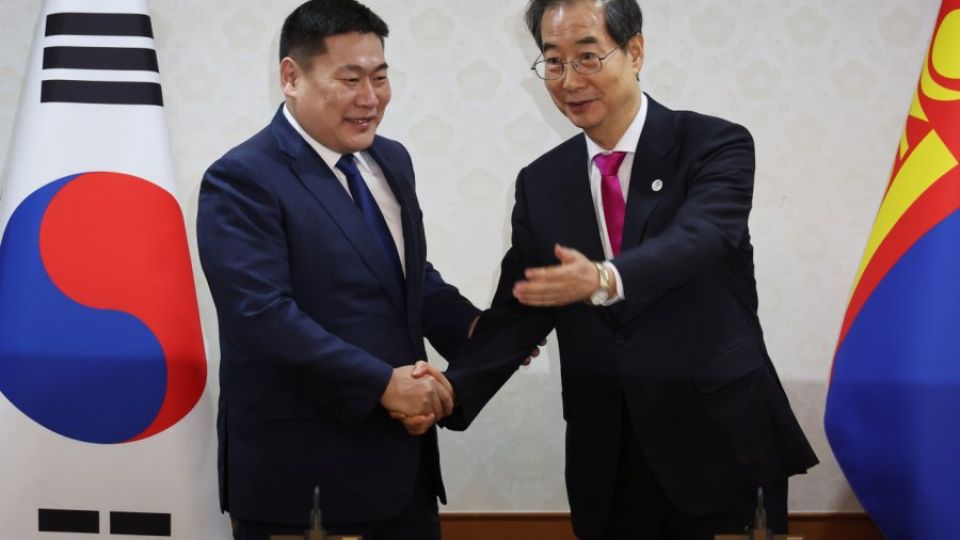February 16, 2023
SEOUL – South Korea and Mongolia will expand cooperation in exploring, developing and trading rare metals in Mongolia to bolster the supply chain of Korea’s electronic goods and components.
According to the South Korean Prime Minister’s office, the two countries agreed to set up a new committee co-led by South Korea’s Second Vice Minister of Trade, Industry and Energy Park Il-jun and Mongolia’s Mining and Heavy Industry Minister Ganbaatar Jambal, to hold an annual regular meeting on the rare material supply chain.
Calling Mongolia “home to rich natural resources” South Korean Prime Minister Han Duck-soo’s office said in a statement that industries of both countries can thrive if Korean entities use advanced mining and processing technology to mineralize rare elements deposited in Mongolia.
The statement came after Han met his Mongolian counterpart Luvsannamsrai Oyun-Erdene on Wednesday in Seoul to take their three decades of bilateral relationship to the next level with a new binding trade agreement.
Representing the two countries, the two leaders declared that they would begin working to establish a bilateral economic partnership agreement in the near future to eliminate constraints to the exchange of goods, services and investment, among others.
Once clinched, the new trade pact will allow Korea to increase trade with and investment in Mongolia, Han’s office said in a statement.
The declaration came along with agreements in six different fields. In addition to the rare material supply chain, the two nations pledged to bolster climate action, military information exchange, cultural exchange for content creation and Mongolia’s urban development.
“The similarities in the languages and cultures of (Korea and Mongolia) have elevated the bilaterial relationship remarkably so far,” Han said in an opening speech, referring to the bilateral trade volume’s 170-fold surge in the past 32 years until 2022.
“I expect (Korea and Mongolia) to usher in a new era in terms of economy, trade and investment in the next 30 years,” Oyun-Erdene said.
“Stepping on the successful establishment of bilateral political relationship over the past 30 years, I hope (Wednesday’s meeting) will serve as a hallmark for a boost in interpersonal relationship among citizens, investors to strive for business cooperation,” he added.
The closed-door meeting took place at the Government Complex Seoul. Alongside Han and Oyun-Erdene, attending the meeting were Second Vice Minister of Foreign Affairs Lee Do-hoon, Korean Ambassador to Mongolia Kim Jong-gu, Mongolian Foreign Minister Batmunkh Battsetseg and Mongolian Ambassador to Korea Erdenetuya Namsrai.
This came during the prime minister-led Mongolian delegation’s visit to Korea this week as they arrived on Monday. It is the first time in 12 years for a Mongolian prime minister to visit the country. It is also the current prime minister’s first foreign trip since his visit to Germany in October 2022.
Korea and Mongolia established trade ties in March 1990. Mongolia became a democratic country following a peaceful transition in 1990.
In the meantime, the Prime Minister’s office said Oyun-Erdene had expressed his intention to support the South Korean port city Busan’s bid to host the 2030 World Expo ahead of the vote in November. Oyun-Erdene is scheduled to head to Busan Thursday.


